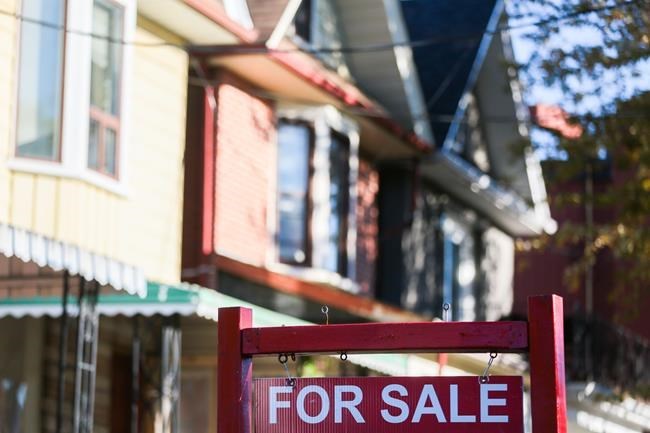TORONTO — Ontario's surprise move to increase the tax paid by foreign homebuyers to 25 per cent won't have much effect on the province's already-cooling market, housing industry observers say.
"I was a big believer a number of years ago that foreign investment was playing a fairly significant role in the large run-up in prices we saw in Ontario and B.C.," said BMO Capital Markets chief economist Douglas Porter.
"But it's not obvious that it's played a large role in the strength and prices we've seen in the past couple of years, so I wonder whether this will really do much."
A Canada Mortgage and Housing Corp. report from 2019 found 3.3 per cent of Ontario properties had at least one non-resident owner, while B.C. and Nova Scotia properties with at least one-resident owner amounted to 6.2 per cent each.
Porter's impression that the higher tax, announced late Monday, won't quell the market was echoed by many in the industry, who questioned the decision's timing because sales and prices are already down from pandemic highs.
September's national average home price sank 6.6 per from the same month last year to sit at $640,479, while sales slumped 32.2 per cent over the same period, the Canadian Real Estate Association has said.
Because the market is already cooling from the rampant pace seen at the end of 2021 and the start of 2022, Porter said it was "surprising" to see the government take more action against foreign buyers.
The non-resident speculation tax — often called a foreign buyer's tax — has sat at 20 per cent since March, when the government hiked the rate from 15 per cent and expanded it to apply provincewide.
The further increase "speaks to the ongoing concern that even with the pullback that we've seen in prices, affordability is still a very serious issue," Porter said.
The province likely made the move because it's "relatively pain-free" for domestic buyers, he added.
Daniel Foch said Monday's hike didn't make much sense because the federal government is already on track to enact a two-year ban on foreign investors by Jan. 1.
"We really only have three months before foreign buyers are banned, so ... maybe they're trying to get a last squeeze out of this tax," said the Greater Toronto Area broker and host of the Canadian Real Estate Investor podcast.
But Emily Hogeveen, a spokesperson for Finance Minister Peter Bethlenfalvy, defended the decision, saying the tax hike is not temporary like the federal ban.
"There are no 'temporary' solutions to the housing crisis," she wrote, in an email.
"While final details have not yet been published, some proposed exceptions to the ban appear significant enough to still permit residential property purchases in Ontario that may be subject to the non-resident speculation tax."
She pointed to recreational properties as an example of a property that might be omitted.
Like Porter, Foch suspected the tax will have little effect on the market and said he'd rather the province focus on supply or even creating a foreign home ownership registry.
While the Ontario Real Estate Association said it was "pleased" with the tax hike, it too called for other measures, such making home purchases more affordable for first time buyers.
"Ontario should give first-time homebuyers immediate relief by eliminating the punishing land transfer tax for first-time buyers or increasing the existing rebate," OREA chief executive Tim Hudak, said in a statement.
"This tax adds thousands of dollars to a young buyer’s closing costs and increasing the rebate would help hundreds of struggling families today.”
This report by The Canadian Press was first published Oct. 25, 2022.
Tara Deschamps, The Canadian Press


